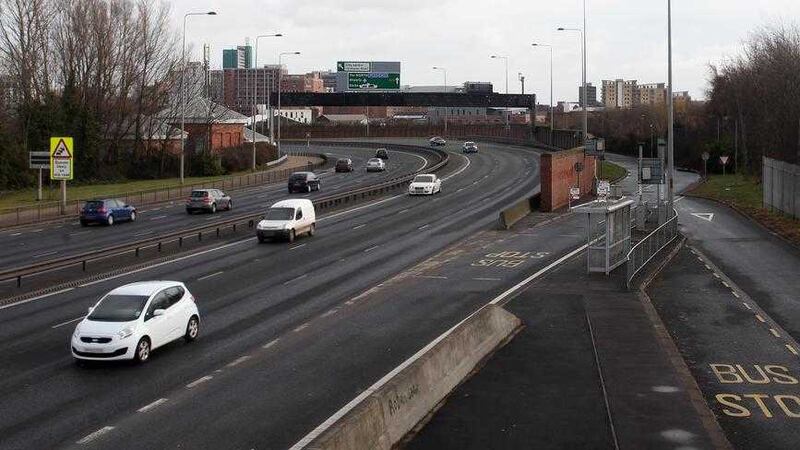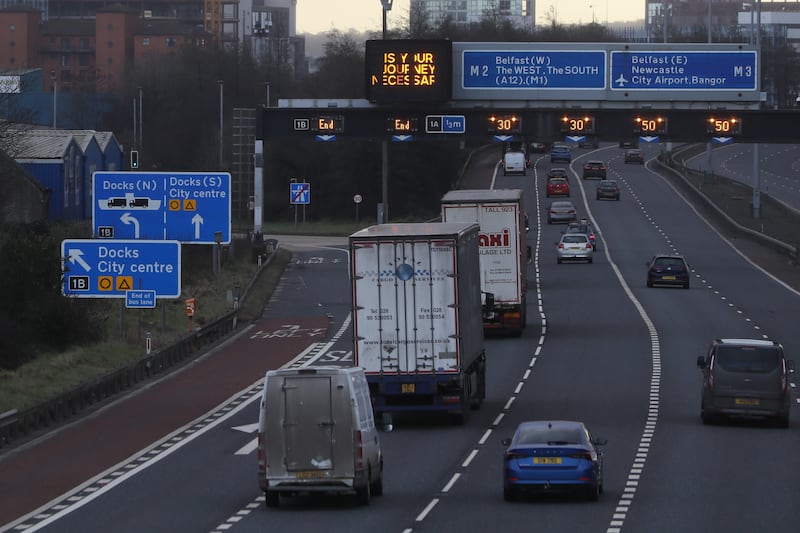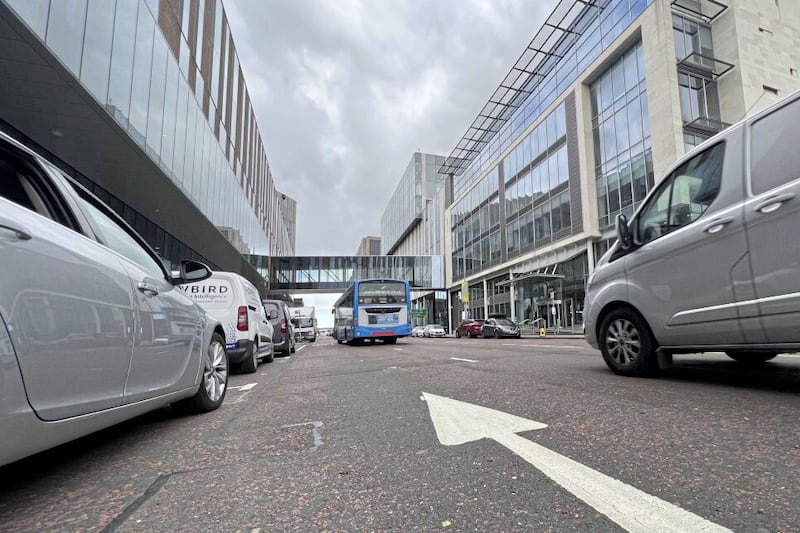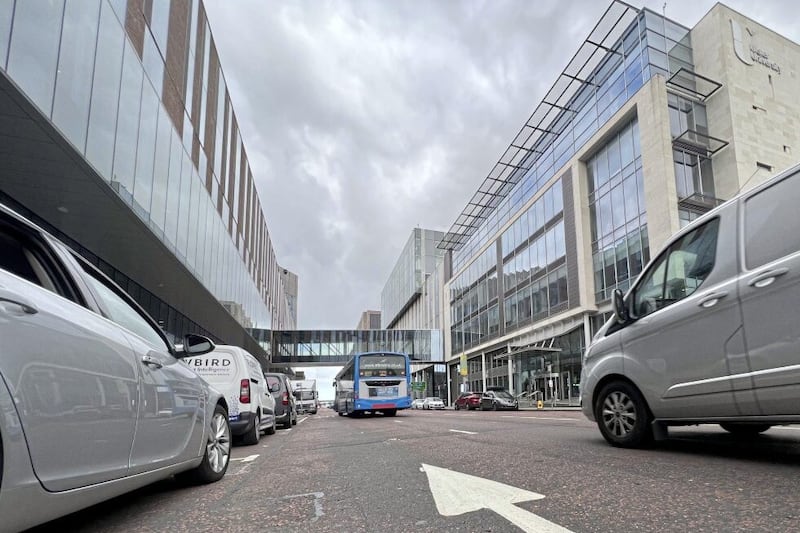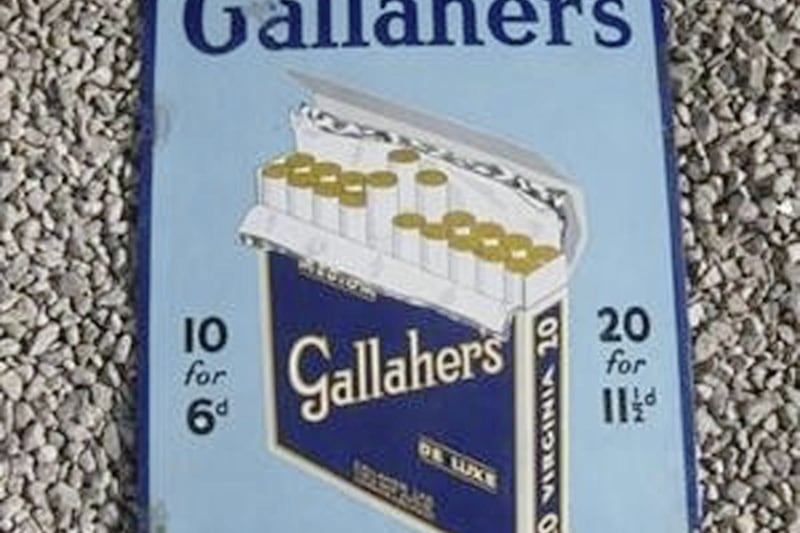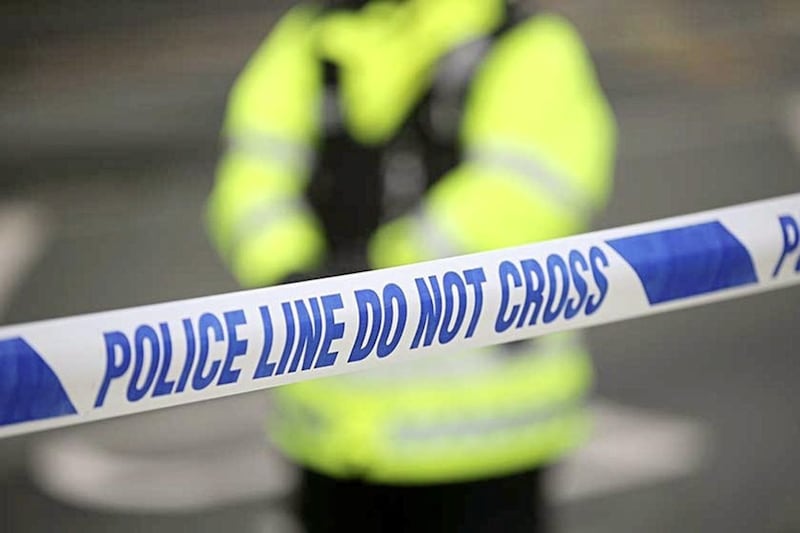TRANSPORT officials expect “one to two accidents per week” at a planned new motorway interchange in Belfast, a public inquiry has been told.
The second day of the inquiry into the proposed York Street Exchange, to link the M2, M3 and Westlink at a cost of between £125-165m, saw heated exchanges about road safety.
An audit, carried out by engineering consultancy firm AECOM, has predicted that accidents in the area would increase by almost a third over a period of 60 years.
The firm also confirmed that a recommendation to close the Clifton Street on-slip due to concerns over increased collisions between merging traffic from Clifton Street to the M3 was not being implemented.
Vector Improvements Ltd, a management consultancy firm, yesterday outlined alternative plans involving alterations to existing junctions.
Consulting engineer Pascal Lynch said the department's plans had been "in the pipeline for 10 years" and would "see economic benefits in 2047, taking 26 years to pay off if built in 2021".
He said there would also be "an increase of almost 1,000 accidents, and the department expects 1-2 accidents a week."
Lawyer and former GAA star Joe Brolly, who said he was at the inquiry to assist Mr Lynch as a "concerned citizen" rather than as a barrister, described the current state of the York Street area as "a concrete jungle, as ugly as the H-Blocks".
He claimed it was "ludicrous" that AECOM had carried out the safety audit on a project it had helped design.
As part of Vector’s proposal, which Mr Lynch claims could "be implemented in 5% of the time frame" at a maximum cost of £5m and without building new roads, traffic would be re-routed using the existing underpass at Dee Street and by making "more use of the Broadway and Stockmans Lane exits".
Mr Lynch said: "The compromise is that pedestrian and cycling routes on the network would be cut off."
The inquiry heard that Transport NI said the proposal would be costly and it would be "reluctant" to take it forward.
Mr Lynch said a trial of Vector's proposals could take place to assess their effectiveness.
However, Andrew McGuinness from AECOM said: "The trial would see no access to M2 or Dock Street from north Belfast, and there would be no access to M3 or north Belfast from the docks."
Transport consultant Kevin McShane, representing the Harbour Commissioners, said the port authority supported the department's plans and "would have grave concerns about how a trial would impact the city".
Gordon Clarke, director of Sustrans, which promotes the use of public transport, said an opportunity to incorporate the University of Ulster redevelopment, bringing an extra 1,300 students and 2,000 staff in the city centre, into the plans had been missed.
Residents have raised concerns including air quality, access to light and the proximity of added traffic lanes to properties, with 33 objections to date.
The inquiry was also told on Tuesday that a memorial to the 15 victims of the 1971 UVF bomb at McGurk’s Bar on North Queen Street would have to be demolished if the project goes ahead.
The inquiry, at the Assembly Commission buildings in Belfast, concludes today with Transport NI and AECOM presenting points against the Vector proposal.
